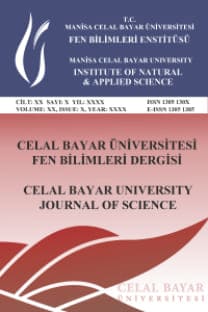Route Optimization of the Electric Vehicles with Heterogeneous Fleet / Heterojen Filoya Sahip Elektrikli Araçların Rota Optimizasyonu
In recent years, the researches on electric vehicles, which is an alternative to fossil-fuel based engine technology, have been increasing because of its promising opportunity for reducing cost and pollution effects caused by transportation. However, their limited cruising range and long recharging time hinder the widespread usage of this technology. Especially for the long distances, the charging stations and charging times of the electric vehicles are critical issue for commercial transportation. In this study a mixed integer mathematical model is developed for the electric vehicle routing problem with recharging stations in order to achieve an effective utilization of the electric vehicles in logistics operations. In addition to the vehicle loading capacity and time windows constraints considered in the traditional vehicle routing problems, the charge capacity and the charging times of the electric vehicles in stations are mathematically identified in the proposed model. This model also considers the heterogeneous fleet consist of different type electric vehicles which can provides more effective route plans by selecting appropriate vehicles for the routes. The proposed model is tested on a benchmark problem set and the advantages of the heterogeneous fleet strategy is exposed by comparing the results obtained by homogeneous fleet. Numerical results show that, heterogeneous fleet provides considerable saving on total travelling distance and decrease on total number of vehicles used for the operations. Moreover, a feasible solution is found for some problems with a heterogeneous fleet, while the homogeneous fleet could not reach a feasible solution for these problems.Son yıllarda fosil yakıtlı motor teknolojisine alternatif olan elektrikli araçlar üzerine yapılan çalışmalar, bu teknolojinin taşımalardan kaynaklı olan maliyet ve çevreye olan etkilerin azaltılması açısından umut verici bir fırsat olması nedeniyle artmaktadır. Ancak elektrikli araçlara ait düşük seyir menzili ve uzun şarj süreleri bu teknolojinin yaygın olarak kullanılmasını engellemektedir. Özellikle uzun mesafeler için elektrikli araçların gidebileceği şarj istasyonları ve araçların şarj süreleri ticari taşımalar açısından önemli bir durum haline gelmektedir. Bu çalışmada, elektrikli araçların lojistik operasyonlarında etkin kullanımını elde etmek amacıyla şarj istasyonlarını da kapsayan elektrikli araç rotalama problemi için karma tamsayılı bir matematiksel model geliştirilmiştir. Geliştirilen modelde, klasik araç rotalama problemlerinde dikkate alınan araç yük kapasitesi ve zaman penceresi kısıtlarına ek olarak elektrikli araçların şarj kapasiteleri ve şarj istasyonlarında geçen şarj dolum süreleri matematiksel olarak ifade edilmiştir. Bu model ayrıca uygun araç seçimi ile daha etkin rota planlaması sağlayan ve farklı elektrikli araçlardan oluşan heterojen filoyu da dikkate almaktadır. Önerilen model bir örnek problem seti üzerinde test edilmiş ve heterojen filo stratejisinin avantajlarını ortaya koymak için homojen filo ile elde edilmiş sonuçlarla karşılaştırılmıştır. Sayısal sonuçlar heterojen filonun toplam dolaşım mesafelerinde ve operasyonlar için kullanılan araç sayılarında kayda değer azalış sağladığını göstermiştir. Ayrıca, bazı problemler için homojen filo ile çözüm elde edilemezken, heterojen filo ile uygun bir çözüm elde edilmiştir.
Keywords:
Vehicle routing, electric vehicles, heterogeneous fleet mathematical modelling, charging stations,
___
- [1] Solomon, M.M. Algorithms for Vehicle Routing and Scheduling Problems with Time Windows Constraints. Oper. Res. 1987; 35(2), 254–26
- ISSN: 1305-130X
- Başlangıç: 2005
- Yayıncı: Manisa Celal Bayar Üniversitesi Fen Bilimleri Enstitüsü
Sayıdaki Diğer Makaleler
Asimetrik Gezgin Satıcı Problemi İçin Bir Evrimsel Strateji Algoritması
Elif SEVİM, Ali SEVİM, Zuhal KALCIOĞLU, Turgay TURNA, Şengül ALPAY KARAOĞLU
Structural Response of Two-Storey Reinforced Concrete Building Under Blasting Effects
Muhammet ÖZDOĞAN, Lütfü NAMLI, Bilal SUNGUR, Bahattin TOPALOĞLU, Aydın DURMUŞ
Photocatalytic Treatment of Baker's Yeast Effluent Using UV Light and TiO2/ZnO Composite
Mustafa OSKAY, Gülşen SARACALOĞLU, Abdurrahman Üsame TAMER
Derya DOĞAN DURGUN, Ferhan Nihan ALTINDAĞ
